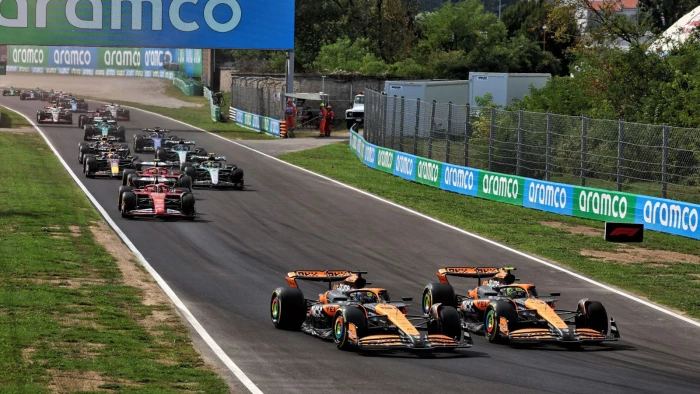George Russell advocates for mental health support in Formula 1
Mercedes driver George Russell
George Russell recently highlighted the advantages of consulting a psychologist to cope with the "emotional hangovers" prevalent in Formula 1.
The Mercedes driver discussed the intense mental challenges associated with F1, emphasizing how they often rival the physical demands of the sport.
Competing in Formula 1 demands immense mental resilience, with drivers constantly navigating mental obstacles both on and off the track. One significant issue for many drivers is the uncertainty surrounding the driver market, especially as the 2025 season approaches.
Most drivers face a solitary path to F1, often leaving school early to chase their motorsport dreams. Russell himself experienced these mental challenges first-hand, progressing to his current position with Mercedes while battling the unique emotional struggles each Grand Prix presents.
Ahead of the Emilia Romagna Grand Prix, which coincided with Mental Health Awareness Week, Russell spoke candidly about the significance of mental health. "As I've grown older, I've recognized how important mental health is," he shared with the media.
Reflecting on his teenage years, Russell admitted, "Pursuing my dream out of school, without many friends or peers of the same age, I didn't fully understand what I was going through."
He described the emotional roller-coaster of Formula 1, noting that even after a successful weekend, the following Monday could bring an "emotional hangover." Addressing these emotional and mental challenges has been crucial for Russell, who sought professional help to manage the pressures of F1.
Seeking professional assistance has positively impacted Russell's life both on and off the track, particularly by alleviating stress. He believes that everyone can benefit from talking to a professional, even those who feel they are in a good place.
"Finding ways to deal with that is so important, not only for my performance but also for my own happiness and to enjoy my life," Russell continued.
He stressed that speaking with a professional can be beneficial for anyone, not just those experiencing difficulties. "Talking with somebody can take a weight off your shoulders or provide ideas on how to improve as a person and a professional," he explained.
Russell compared psychological support to physical training, saying, "I enjoy going to the gym with my trainer to stay in shape and keep fit, and I try to do the same psychologically."
As the Formula 1 calendar moves forward, the next race is the Canadian Grand Prix, set for the weekend of June 7-9. This race will be the ninth of the season, taking place over 70 laps of the 4.361-kilometre Circuit Gilles-Villeneuve in Montreal on Sunday, June 9.
Russell's advocacy for mental health underscores the increasing recognition of psychological well-being in high-performance sports.

